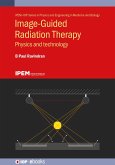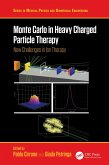Practical Radiobiology for Proton Therapy Planning covers the principles, advantages and potential pitfalls that occur in proton therapy, especially its radiobiological modelling applications. For these to be understood, this book presents summaries of radiotherapy, radiobiology and clinical radiobiological modelling for conventional radiotherapy techniques as well as for protons and other ion beams. Radiobiological modelling has proved useful in radiotherapy, especially in situations where departures from protocols occur for a variety of reasons such as unintended treatment interruptions, errors in treatment delivery, dose rate effect applications, comparisons of different techniques, dose fractionation schedules, re-treatments and even in clinical trial design.
This book is intended to educate, inform and to stimulate further research questions. Additionally, it will help proton therapy centres when designing new treatments or when unintended errors or delays occur. The clear descriptions of useful equations for high LET particle beam applications, worked examples of many important clinical situations, and discussion of how proton therapy may be optimized are all important features of the text. Practical Radiobiology for Proton Therapy Planning blends the relevant physics, biology and medical aspects of this multidisciplinary subject.
This book is intended to educate, inform and to stimulate further research questions. Additionally, it will help proton therapy centres when designing new treatments or when unintended errors or delays occur. The clear descriptions of useful equations for high LET particle beam applications, worked examples of many important clinical situations, and discussion of how proton therapy may be optimized are all important features of the text. Practical Radiobiology for Proton Therapy Planning blends the relevant physics, biology and medical aspects of this multidisciplinary subject.
Dieser Download kann aus rechtlichen Gründen nur mit Rechnungsadresse in A, D ausgeliefert werden.









